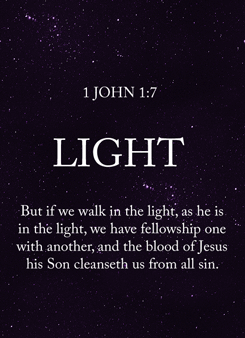- Jul 22, 2014
- 41,496
- 7,861
- Country
- United States
- Faith
- Non-Denom
- Marital Status
- Married
Are we saved by grace, faith, works of faith, repentance, election, or combination of these?
(Please vote in the poll).
(Please vote in the poll).










"The gospel that Jesus proclaimed was a call to discipleship, a call to follow Him in submissive obedience, not just a plea to make a decision or pray a prayer.
You said:Jesus' message liberated people from the bondage of their sin while it confronted and condemned hypocrisy. It was an offer of eternal life and forgiveness for repentant sinners, but at the same time it was a rebuke to outwardly religious people whose lives were devoid of true righteousness. It put sinners on notice that they must turn from sin and embrace God's righteousness. Our Lord's words about eternal life were invariably accompanied by warnings to those who might be tempted to take salvation lightly. He taught that the cost of following Him is high, that the way is narrow and few find it. He said many who call him Lord will be forbidden from entering the kingdom of heaven (cf. Matthew 7:13-23). Present-day evangelicalism, by and large, ignores these warnings. The prevailing view of what constitutes saving faith continues to grow broader and more shallow, while the portrayal of Christ in preaching and witnessing becomes fuzzy. Anyone who claims to be a Christian can find evangelicals willing to accept a profession of faith, whether or not the person's behavior shows any evidence of commitment to Christ. In this way, faith has become merely an intellectual exercise.
You said:Instead of calling men and women to surrender to Christ, modern evangelism asks them only to accept some basic facts about Him. This shallow understanding of salvation and the gospel, known as "easy-believism," stands in stark contrast to what the Bible teaches. To put it simply, the gospel call to faith presupposes that sinners must repent of their sin and yield to Christ's authority. This, in a nutshell, is what is commonly referred to as lordship salvation. The Distinctives of Lordship Salvation There are many articles of faith that are fundamental to all evangelical teaching.
You said:For example, there is agreement among all believers on the following truths:
- (1) Christ's death purchased eternal salvation;
You said:(2) the saved are justified by grace through faith in Christ alone;
You said:(3) sinners cannot earn divine favor;
You said:(4) God requires no preparatory works or pre-salvation reformation;
Eternal life is a person named Jesus Christ. Jesus is the gift. But like all gifts in life, they come with works of responsibility in taking care of them (otherwise we can end up losing our gifts).You said:(5) eternal life is a gift of God;
You said:(6) believers are saved before their faith ever produces any righteous works
You said:(7) Christians can and do sin, sometimes horribly.
this is from the Grace Community Church Distinctive on Lordship Salvation . It was adapted from John MacArthur's material on the topic of lordship salvation, and serves as an excellent introduction to the subject.
quote from this link :
An Introduction to Lordship Salvation
(works based salvation is considered off topic, and I will request that the thread be closed if too many posts show up with works based soteriology)
First, Scripture teaches that the gospel calls sinners to faith joined in oneness with repentance (Acts 2:38; 17:30; 20:21; 2 Peter 3:9). Repentance is a turning from sin (Acts 3:19; Luke 24:47) that consists not of a human work but of a divinely bestowed grace (Acts 11:18; 2 Timothy 2:25). It is a change of heart, but genuine repentance will effect a change of behavior as well (Luke 3:8; Acts 26:18-20).
You said:In contrast, easy-believism teaches that repentance is simply a synonym for faith and that no turning from sin is required for salvation.
